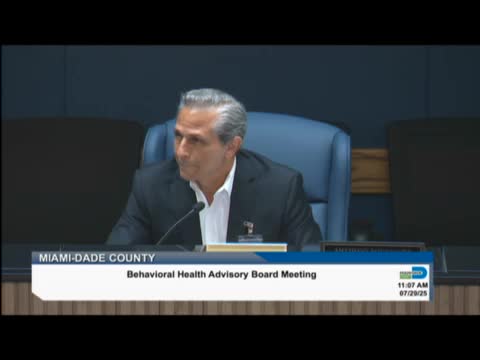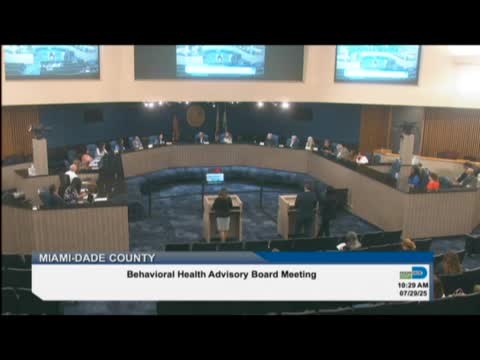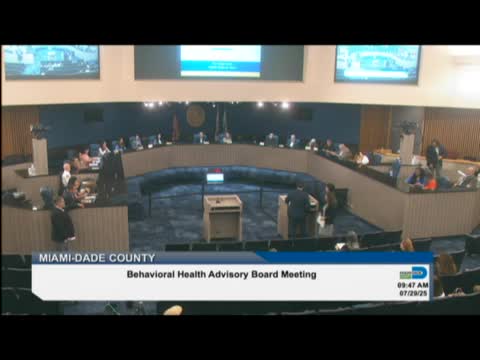Article not found
This article is no longer available. But don't worry—we've gathered other articles that discuss the same topic.

Thriving Mind presents safety‑net Baker Act data; board debates bylaws, presentation limits and a communications subcommittee

Rogers Behavioral Health outlines local PHP/IOP services, first‑responder virtual program and residential options

